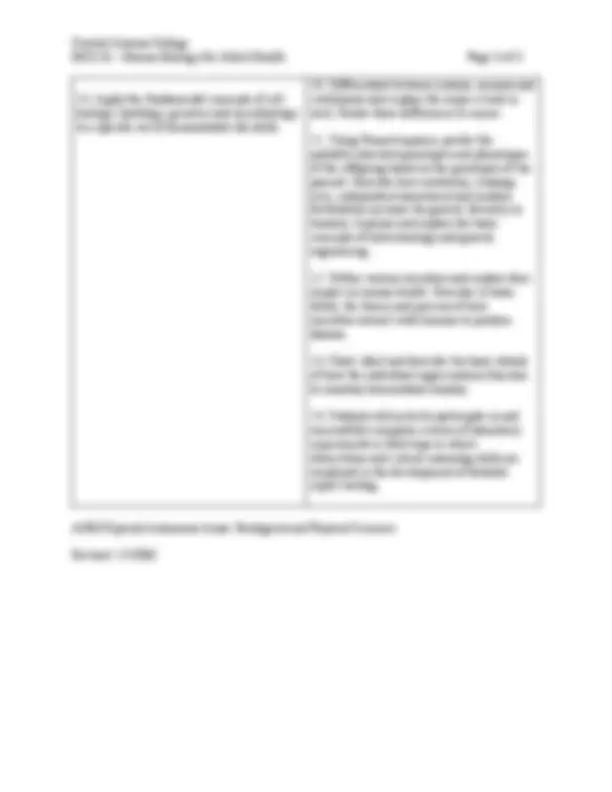



Study with the several resources on Docsity

Earn points by helping other students or get them with a premium plan


Prepare for your exams
Study with the several resources on Docsity

Earn points to download
Earn points by helping other students or get them with a premium plan
Community
Ask the community for help and clear up your study doubts
Discover the best universities in your country according to Docsity users
Free resources
Download our free guides on studying techniques, anxiety management strategies, and thesis advice from Docsity tutors
An outline for the human biology for allied health course offered by central arizona college. The introductory course covers fundamental concepts of cell biology, histology, genetics, and microbiology for allied health majors. The course includes 3 lectures and 3 labs per week, and students are required to have completed rdg100a or rdg100b as a prerequisite. The learning outcomes statement lists the skills and knowledge students will acquire upon completion of the course, including understanding the scientific method, cell structure and function, energy generation, dna replication, and gene expression.
Typology: Lab Reports
1 / 3

This page cannot be seen from the preview
Don't miss anything!


Central Arizona College 8470 N. Overfield Road Coolidge, AZ 85228 Phone: (520) 494-5206 Fax: (520) 494-
Prefix/Number: BIO
Course Title: Human Biology for Allied Health
Course Description :
An introductory course for allied health majors with an emphasis on humans. Topics include fundamental concepts of cell biology, histology, genetics and microbiology.
Semester Hours : 4 Times for Credit: 1
Lecture/Lab Ratio : 3 Lectures, 3 Labs
Pre-requisites: RDG100A or RDG100B
Co-requisites: None
Cross Listed: None
Grading Options: A/F
Approved Modalities: F2F, Hybrid, IITV
Central Arizona College BIO156 – Human Biology for Allied Health Page 2 of 3
Learning Outcome Statements:
Upon completion of this course the student will be able to:
Standards:
The student will meet the learning outcomes at the following level, degree or measurement: